It was a cold, rainy day in April in the southern suburbs of Denver. I looked out my bedroom window, anxiously hoping the spring squall would go away. I’ll never forget my mother coming downstairs with the bad news.
I was dressed and ready to go. Fishing shirt. Blue jeans. Old sneakers. I had a carpenter’s cap on, a loaner from my grandfather. I had my white fiberglass rod all set up, complete with the kid-friendly thumb-release lever and the black thread wrappings. It was armed with a spool of 8-pound mono, and tipped with size 12 snelled Eagle Claw hook that was just itching for a worm. I had my creel—also on loan from my grandfather—resting on the floor next the rod, and it was bursting with those little jars of Pautzke’s Balls O’ Fire salmon eggs and a small coffee can of nightcrawlers I’d plucked from my grandmother’s garden the night before.
It was “Huck Finn Day” at Sterne Park just down the parkway, and the city of Littleton had just dumped a thousand or so rainbow trout into the the little lake of my childhood for the annual fishing derby. I was going to win, my 8-year-old brain declared. I almost won the year before—I took a solid second behind an older boy who’d wrangled in a 16-inch rainbow, which was just a hair bigger than mine at 15 inches.
There was no stopping me this year, I knew. I’d done my recon. I knew where the lake was its deepest, and I knew that because I’d spent the last three weeks dropping dough balls to the bottom in search of carp. On the eastern edge of the lake, the big lead sinker took a 12 count to hit the bottom. On the south end, an 8 count. Near the outlet on the east west side? A 6 count.
I had my spot picked out on the west side, and we’d have been there already if I’d had my say. But the rain. The unrelenting rain. I remember watching slide down my bedroom window in sheets that fateful morning.
“I just called the parks department,” my mom said as she was walking down the stairs toward my bedroom. “Huck Finn Day is cancelled this year. There’s just too much rain.”
I remember being devastated. I’m quite sure I was inconsolable. Huck Finn Day. Cancelled. Hide anything sharp. Life was no longer worth living.
As much as I geek out today about fly fishing and all its wonderful trappings, it pales in comparison to the excitement I felt as a kid when my grandfather would come calling for a fishing trip. It was my absolute favorite thing to do, and I’m certain, over the course of my years on the parkway, I caught every carp in Sterne Lake … twice. Once, while crossing the rickety bridge across Sterne Ditch as it flowed into the lake, I fell in, rod, reel, net and all. When I got out, I discovered that I’d inadvertently netted a really nice bluegill—the only one I’d ever caught in the little pond.
So when the chance to catch rainbows without having to hop into Granddad’s truck and drive a couple of hours into the mountains presented itself, I was plenty thrilled. When my mom broke the news of the demise of Huck Finn Day on account of rain, I was undoubtedly heartbroken. I’m sure it made for a long day of parenting, having endured similar tragedies with my own kids. Belated apologies, Mom.
But, a week later, the sun came out on the Front Range of Colorado, and while the city didn’t schedule another Huck Finn Day, there were trout in the local lake that begged to be caught by kids like me. So my grandfather and my Uncle John dropped by and grabbed me, and we wandered down to Sterne Park.
Granddad had a whole new can of nightcrawlers for me, knowing full well mine had dissolved into mush in the can I’d tucked away in my creel the week before. But the bait of the day turned out to be those trusty Pautzke’s salmon eggs—speared three at a time on one of those snelled hooks and dropped the murky bottom of Sterne Lake, they did the trick. We caught small trout, hand over fist, for a good hour or so, but I held off on keeping my limit of six in hopes of finally hooking that behemoth that I was sure still lurked in the pond.
Finally, my uncle and I wandered over to the lake’s western edge, where I knew it was the deepest. I loaded my cast and let her fly. The “thunk!” of lead hitting the water is a pretty magical sound for a kid who loves to fish. I counted down from 12 until the baited hook hit bottom. I turned the reel a couple of revolutions just to tighten the line. I let it sit, knowing that, while the lead was in muck, the salmon eggs were suspended in the water column a good foot above the sinker.
If the big fish was there, I knew, this was where it would be. So I waited.
Patience for a little kid is rare, and I was no different. The summer before, bored of not catching fish one particularly warm day, I’d rested my rod against a lakeside rock under a big weeping willow, and wandered over to the playground where the swingset stood unused. I’d dropped a homemade doughball into the depths, reeled tight and figured I’d notice if I got a bite. I’ll never forget leaping off the swing and sprinting toward the lake as I watched my rod skidding across the grass on its way into the water. My last-second dive across the lawn was too late—my rod became part of the subsurface structure of Sterne Lake, and I rode my banana-seat bike home in tears.
The next day, an older gentlemen showed up at my house, my rod and reel in hand. He’d hooked it while fishing, he explained to my mother, and he’d heard that it belonged to little blond kid in the white house, just up the parkway a few blocks. I was ecstatic.
But on this day, I waited. I think it helped to have my uncle there, too. You don’t just leave your uncle fishing while you wander off to the teeter-totter.
After a bit, I noticed the tight line start to lift from the water, and I knew I had a bite. I grabbed my rod and slowly cranked the reel. Yep. There was something there. Having done it a thousand times, I hit back at the fish, thrusting the glass rod straight up. And I came tight to something big.
“I think it’s a carp,” I said, slightly dejected. I kept reeling, and I felt the heft of the fish, but this was a little different than what I was used to with Sterne’s beefy cyprinids. In a split second, the most beautiful fish I’d ever seen gushed from the grungy water and took flight.
It was huge.
“That’s no carp!” Uncle John exclaimed as the rainbow glided through the air and crashed back into the lake. I, of course, was thrilled. After a really lively fight, my uncle netted the fat fish and declared it to be 18 inches long. A beast, and my greatest trophy to date.
“That would have won the derby for sure,” I remember my grandfather saying as we drove home to clean the mess of trout for dinner that night. I beamed. In the span of a week, I’d gone from contemplating the end of it all to celebrating my unmatched prowess as an angler.
And it was because some well-meaning parks manager in Littleton, Colo., had stocked trout in the local pond.
I was lucky. I got to go fishing to the mountains or, back before the aquifer dried up on the prairie, to the spring-creek headwaters of the Republican River near the Nebraska border, to chase trout with Granddad or my uncle. But for most kids, even today, the much-maligned stocker trout is about as adventurous as it gets, at least until they’re older and able to discover farther-flung fishing on their own.
For those that would judge judge, consider this: that 18-inch hatchery clone contributed to my fishing delinquency for the rest of my life. It’s one of the reasons I continued to fish for trout, eventually evolving into a fly fisher. It’s one of the reasons I developed an interest in fisheries biology … in how to tell one trout from another. It’s why I now work happily for a conservation organization that works to protect and restore wild and native fish populations.
Today I’m an honest-to-God trout-fishing evangelist out to protect wild and native trout and salmon at every turn. At Trout Unlimited, that includes working with state agencies to ensure that hatchery trout aren’t planted over native trout in waters of high value. In truth, it’s time state and federal agencies reserve waters capable of supporting trout populations year-round solely for wild fish (and native fish preferably). And in rivers healthy enough to support viable wild, anadromous fish populations—steelhead and salmon? Hatchery fish do more harm than good and just don’t belong. Science has proven this time and again.
But in a city drainage pond, or a stretch of urban river that can’t support wild trout all year long? Stock the fish. Hook a new angler who might one day grow up to be a fly fisher, a volunteer or a biologist. Use stocked trout to encourage kids to fish, to get outside and be a part of something that doesn’t involve a smartphone. Breed the next generation of conservationists, and, dare we dream, wild fish advocates.
Take my advice kids. Dig those nightcrawlers from Grandma’s garden the night before. And don’t leave home without your Balls O’ Fire.
I hope you catch your trophy this spring.




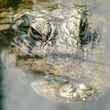
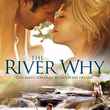
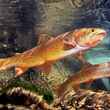
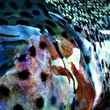
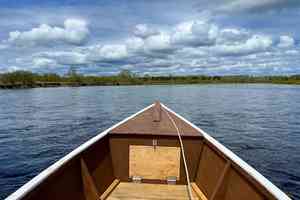


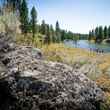
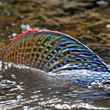
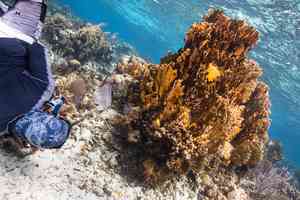


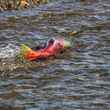
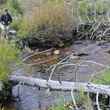



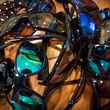
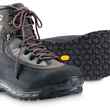



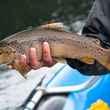
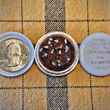
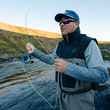
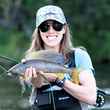
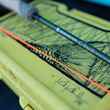
Comments
Ed Barth replied on Permalink
Awesome commentary, I have hooked my grandsons the same way. One has taken up the fly rod, the other is still working at it.
Steven Matthews replied on Permalink
Great article. Caught my largest trout with my dad.
Pages